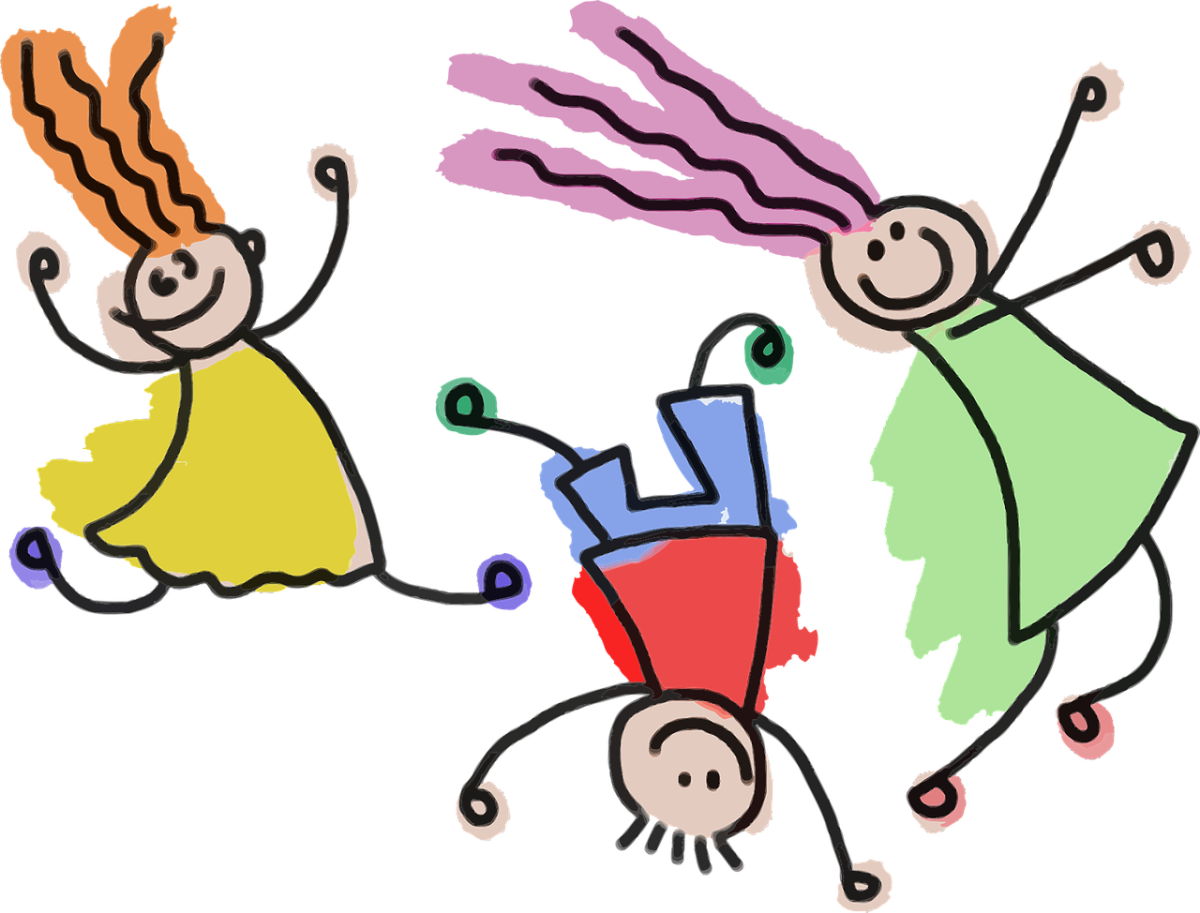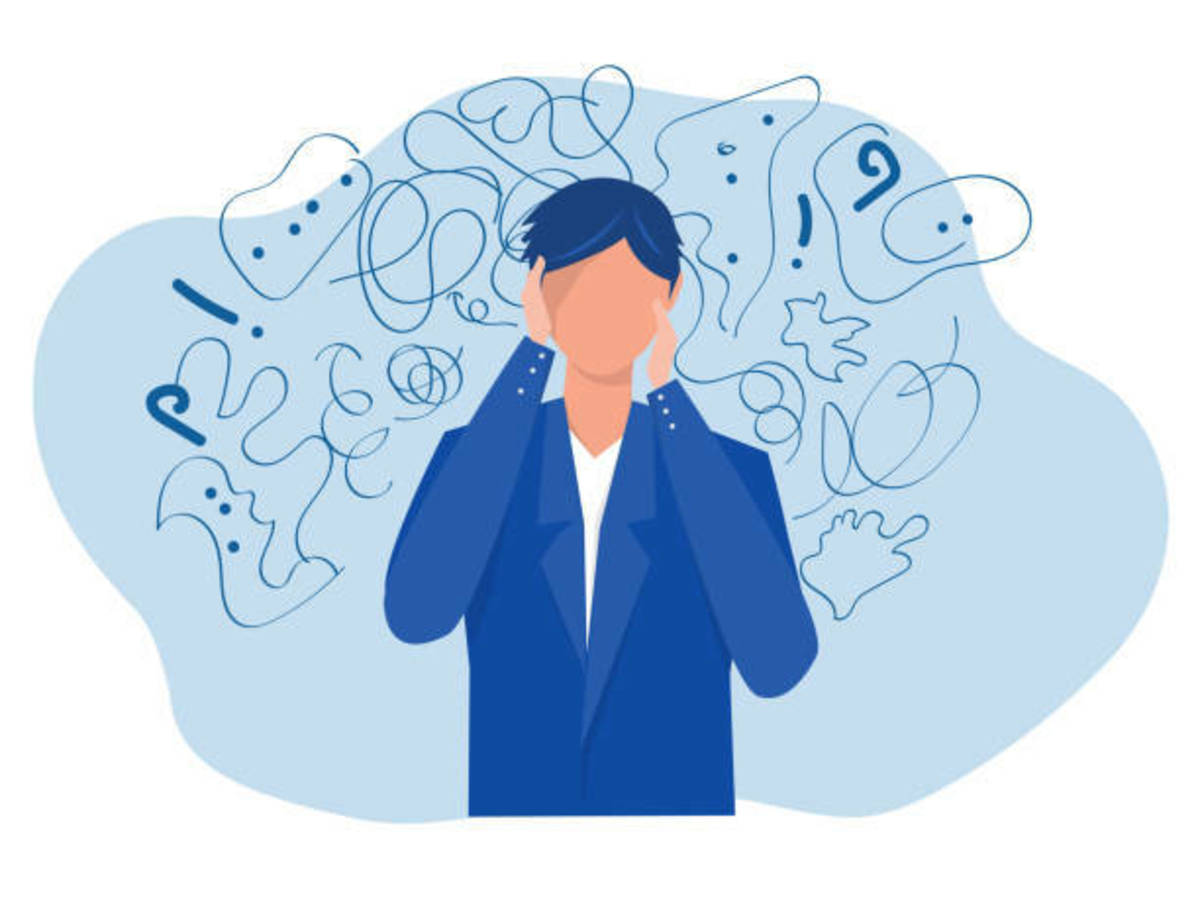The Truth About Your Child's ADHD
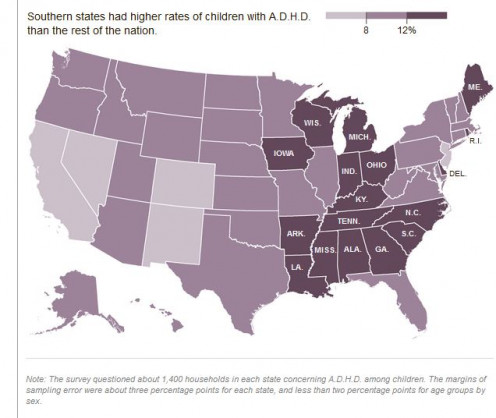
Epidemic Rates
Since March of this year, it has been determined that 11% of all U.S. school-aged children have been diagnosed with Attention-Deficit Hyperactivity Disorder (ADHD). Historically, the prevalence rate has been estimated to only affect anywhere from 3 to 7% of children within that same age group. And according to an article written by the New York Times, this represents a 16% increase in the national prevalence of the disorder since 2007, a number that also reflects a 41% increase of diagnosis within the past decade alone.
Why are there more children affected and what can be done about this ever-increasing prevalence? Many members of the medical community have suggested that this increase in diagnosis can be attributed to the improvement of diagnostic criteria and a renewed national interest in the disorder itself. However, despite this acceptance, there are greater issues lying beneath the surface- overmedication, alternate treatments, and misdiagnoses, all unfortunate aspects of the disorder that affects 7% of girls and 15% of boys.
Other Symptoms of Childhood ADHD
- Easily distracted;
- Excessively sociable;
- Frequently interrupts and cannot wait for his/her turn;
- Frequently forgetful;
- Has problems organizing and completing tasks;
- Frequently daydreams in class and/or at home.
An Insider's Perspective
I have been working with children for several years, many of whom have earned a diagnosis of ADHD one way or another. These children have ranged anywhere from being entirely unable to focus on a task to lacking the ability to perform a crucial developmental activity, such as reading.
As presented to the right, this vast array of symptoms- from extremely mild to the worst of severe- encompasses quite a few functional areas in between, likening the diagnosis of childhood ADHD to the autism spectrum. I can not bring myself to appreciate this comparison, and here's why.
At the very basis of the Attention-Deficit Hyperactivity Disorder diagnosis- for impulse and attention control deficits- there is an inability to focus and/or pay attention to a task at hand. This was the original criteria, and was established as such due to the influence exacted by these symptoms on a child's capacity to learn. More specifically, a child's attention-related issues were attributed to persistent hyperactive behaviors- jumping from one task to another, excessive socialization, and the inability to sit still during academic coursework. Over the course of the last decade, however, the criteria for childhood ADHD has been added to on several occasions, gradually expanded to include hyperactive behaviors in the home and on the playing field; overall poor academic achievement; and many, many other vague and sometimes age-appropriate "symptoms".
When I am presented with a child who has been diagnosed as having ADHD, I am typically very critical of the criteria that was used to nail down this diagnosis. I am a supporter of the "age-appropriate" approach to maladaptive behaviors such as excess energy, the desire to socialize more than learn, and slower-than-ideal learning development. Generally-speaking, we should not be diagnosing a learning disability solely on the presence of age-appropriate behaviors; to do so is counterproductive and damaging over the long term.
ADHD is diagnosed more in boys than in girls. Why? Because boys are more hyperactive during their early developmental stages. Boys tend to take a greater interest in physical activity such as organized sports at earlier ages than girls. Girls tend to develop emotionally much faster than boys, who oftentimes socialize by playing roughly and running around with other boys. Statistically-speaking, boys also tend to develop essential academic skills at a slower rate than girls. These skills might include focusing, reading comprehension, and memorization; these abilities are both established and fostered throughout a child's academic career, usually without the need for an ADHD diagnosis.
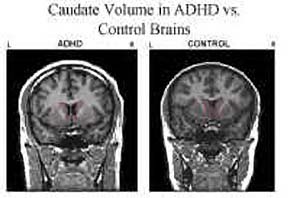
Under-Connectivity
An image representative of the underconnectivity of a brain with ADHD as opposed to a brain without the disorder. The pathways within the brain are more defined without the presence of ADHD symptoms.
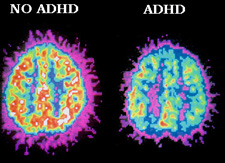
The Allure of "Science"
The image above represents a brain that is functioning normally, and one that is not. The image on the right- which represents a person that has been diagnosed with ADHD- is significantly under-connected compared to the "normal" brain. This can be observed in the color differences between both images, most notably viewed in the three major parts of the brain that have been deemed responsible for the symptoms of ADHD. (I will not delve in to these parts, but for those interested their names are: prefrontal cortex, caudate nucleus, and globus pallidus).
Science will tell us that the individual whose brain is featured on the right has been diagnosed with ADHD and is, at the time of this image, un-medicated. It will also tell you that in order for that person to achieve the brain connectivity demonstrated by the image on the left, he or she will have to be medicated as per an ADHD diagnosis. It will probably refer to the lack of color in the image to the right, and acknowledge the vibrancy of the image to the left.
The relationship between science and the medical world has long since been established. There is a medication for every disorder, deficit, and diagnosis in existence, and both fields often encourage us to take advantage of that. But in reality, most of the medications prescribed for childhood ADHD are 1) unnecessary; 2) incorrect; and 3) interfering with your child's normal brain development. However, I have included these images in order to acknowledge that yes, there are physical differences in a brain with ADHD as opposed to one without. But the acknowledgement stops there, as there are greater influences at work who make the difference much more than it actually is.
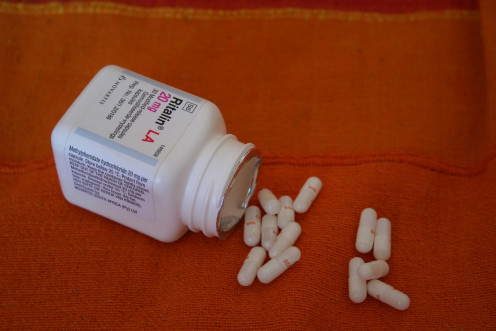
The Dangers of Medication
Did you know that brain continues to develop during utero until young adulthood? That during this lengthy period of time, your child's brain is constantly growing and learning?
I feel that these are facts that some parents forget about their children- that they are growing beings capable of achieving great developmental milestones all throughout their childhoods. Growth spurts of the body can be compared to growth spurts of the mind: there are sensitive periods during these developmental stages in which the brain grows exponentially, providing opportunity for your young learner to accomplish new feats and tasks.
So why are we medicating our ever-growing, developing children? Is it for the child's benefit, or is it more for ours?
I have parents who come to me with children as young as three years old. They tell me that their children is not progressing or learning as well as they should, and that they are considering medication in order to correct these deficits. Sometimes I literally have to pick my lower jaw up off the table after hearing such a story.
Introducing a synthetic means of stimulation to a child's developing brain is essentially medical roulette- there is no preestablished notion as to what result you are going to receive in return. The simple answer for this is that every child progresses differently, and so in essence we are punishing children as a whole for acting and learning like individuals.
ADHD medication such as Ritalin and Adderall alter the brain's reward system, meaning that this medication facilitates the release of the neurotransmitter dopamine into the brain. The brain typically reserves dopamine for pleasurable, naturally-occurring events, such as winning a competition or eating an enjoyable food. ADHD medications are typically effective because they force the brain to work in ways it is not used to; they synthetically force a child to focus, or maintain an even level of energy throughout the day. Whereas this does not seem bad, imagine this child's brain struggling to develop under the burden of these medications.
In addition to this, ADHD medications do possess the ability to cause withdrawal symptoms. Depression, fatigue, heart palpitations, and sudden death in children with more severe heart problems. These are due to the fact that ADHD medications are usually stimulants, and can cause the brain and body to overwork. It is also very easy for a child to overdose on these types of medications, as "tweaking" the dosage until it is correct can be a lengthy and unscientific process, entirely contingent on the child's progress between dosage changes.
There are few severe cases in which ADHD medication is absolutely essential for a child. But does this explain the fact that 22% of all children ages four to seventeen have been diagnosed with ADHD at some point during the lives? Absolutely not.
A Sign of the Times
I am in no way denying the existence of ADHD, even in children. I have personally observed several cases involving severe symptoms that have to be treated with medication. I understand that. Believe me, I do.
What I do not understand, however, is why parents immediately resort to using medications to "correct" their child's dysfunction. Or why parents don't conduct their own, personal research into the definition of an ADHD diagnosis, including natural means of combating symptoms. Most people are probably not aware of the benefit of utilizing more holistic approaches to ADHD in children, which is why I will discuss those next.
The video above reflects a changing philosophy- as parents, we should require a thorough explanation as to why our children can be considered ADHD. Or why they require stimulants such as Ritalin and Adderall, and how these medications can be expected to improve the quality of our children's lives. Educate yourself about the side effects of stimulants, the developmental stages that your child's brain experiences, and the reason why your child might not fit the criteria for a solid diagnosis. The ADHD label and the subsequent medicating should be the last resort, not the first.
Do you support the use of ADHD medications in children?
A Natural Approach- Nutrition
By "natural approach", I do not mean forcing your child to drink homemade poultices or pray to the god of focus and learning disorders. But I do mean investigating non-medication means to alleviate some of the symptoms associated with childhood ADHD.
According to Discovery Fit & Health, food is the main cause for 64% of all children diagnosed with ADHD. This can include anything from a lack of fresh food to a sensitivity in which exposure results in moderate to severe behavioral concerns. Elimination diets work well with children who have been diagnosed with ADHD. In my professional experience, the majority of children that I have worked with possess a sensitivity to dairy products. Eliminate the eggs, milk, and cheese, and sometimes, you're left with a completely different child.
When we eat a food that we're allergic or sensitive to, our brains swell inside of our heads. This in turn affects our stomach, which enjoys a close relationship with our brains (this is why we crave certain foods, or eat entire candy bars). This presents physical symptoms such as headaches, seizures, body aches, and many others. It is always a good idea to have your child tested for food sensitivities before agreeing to medication for his or her diagnosis. In addition to this, adding more fruits and vegetables to the child's diet is a given, as well as more sources of protein such as fish and nuts. Multivitamins are also essential for normal body and brain development.
There is a growing amount of research being presented that supports to need for fish oil and probiotics in a child's diet. Fish oil has been said to be essential for normal and active brain development, while probiotics can help repair the stomach and aid digestion. These are just a few examples of supplements that your child might need, but please conduct your own research before making such a decision.

Video Games May Be Problematic for Boys With Autism, ADHD
A Natural Approach- Exercise
There is one thing that is true for almost every child with ADHD- there is a lot of untapped energy there just waiting to be released. Depending on the preferences of the child, this could be achieved through organized sports that require a lot of movement, or even something as mellow as a nature walk. Providing your child with the opportunity to move will make a difference in many areas of his or her life.
For children with ADHD, active play is essential. The amount of time that your child spends watching television or play games on a screen is directly proportional to the severity of his or her ADHD symptoms. If you are noticing that your child watches a lot of television and seems very hyper in the evenings, it is most likely because he or she is not exercising enough. Children are boundless creatures, meant to always be moving. Give them the chance to eliminate some of that energy the natural way as supposed to medicating them back to normalcy.
Teaching Social Cues
Children learn much of what they know from the adults around them. They are oftentimes mimics of others' behaviors, and will repeat what they observe during the course of their own interpersonal interactions.
Several of the criterium for an ADHD diagnosis involve such interactions. Frequently interrupting another person while they are speaking is at the top of the list; the inability to wait for one's turn is also in there somewhere. As a parent, there will be more than many opportunities for your to educate your child about the need to respect social cues.
I have met several parents who are afraid to correct their children. They permit them to interrupt their conversations, tug on their clothing, tell them "no" at their slightest inclination, and mistreat other children. There is no time like the present to correct these behaviors. Organized sports teach children how to lose gracefully and wait their turns, while simple verbal corrections will imply to your children that interruptions will not be tolerated. It is important to eliminate these types of behaviors if you are in fact interested in seeking a diagnosis of ADHD; can you imagine your child receiving a label because he or she interrupts others? If it seems a little excessive, it's because it is.
Teach your children how to remain neat and organized. Have them start a collection of things they enjoy, such as stamps or cards, and help them establish a means to organize them. Educate them about when it is appropriate to socialize with peers, when it is not, and the difference between the two.
Our goal here is eliminate the number of superficial symptoms your child can present. Disorganization, talkativeness, and forgetfulness should not be the basis for a learning disability. Again, these are easily-misconstrued age-appropriate behaviors that we want to address and fine-tune throughout childhood.
- ADHD: How many children are misdiagnosed?
- Activities for Kids with ADHD - Parenting.com
- Do diet changes help ADHD children? - Chicago Tribune
Dylan Jerrell was having a tough time in kindergarten. The energetic, outgoing Bigfoot fan was easily frustrated, and he responded to challenges with disruptive meltdowns. He wouldn't hit anyone,
ADHD in a Nutshell
Yes, ADHD is real. And yes, there are far too many children who seem to suffer from it these days. But even with this acknowledgement, let's not get too comfortable. Whereas you may trust your doctor with your own life, would you trust him with your child's?
All I hope to achieve by penning this Hub is to encourage parents to conduct their own research. Try natural methods to alleviate symptoms; don't immediately resort to medication. Give your child the chance to grow out of it, normally and without pressure from doctors or medications. Try exercising more and improving your diet, including vitamins and supplements if you so wish.These are fairly easy changes that could mean a lifetime of healthy growth and development for your child.
ADHD is only an epidemic because we allow it to be.





